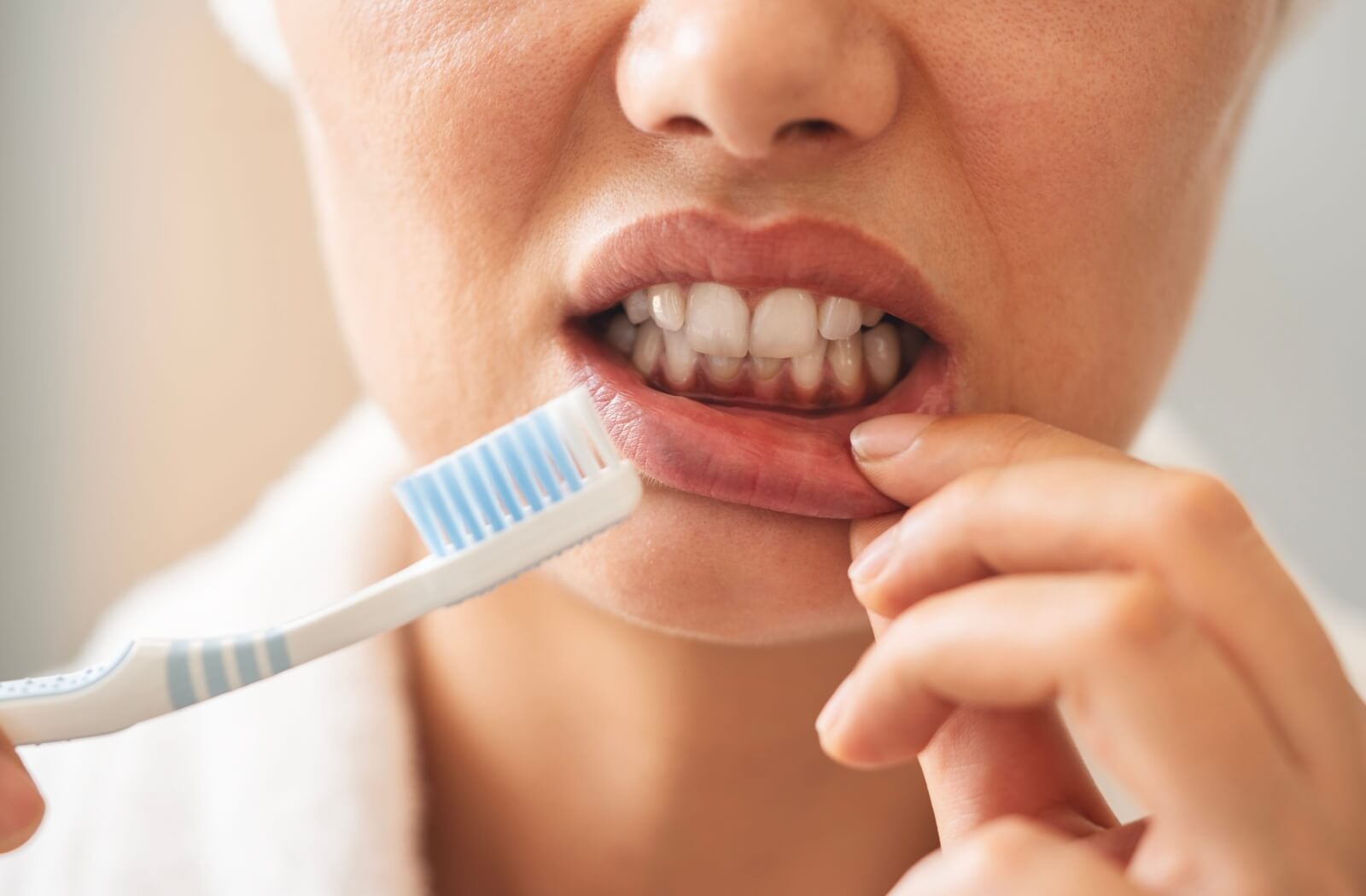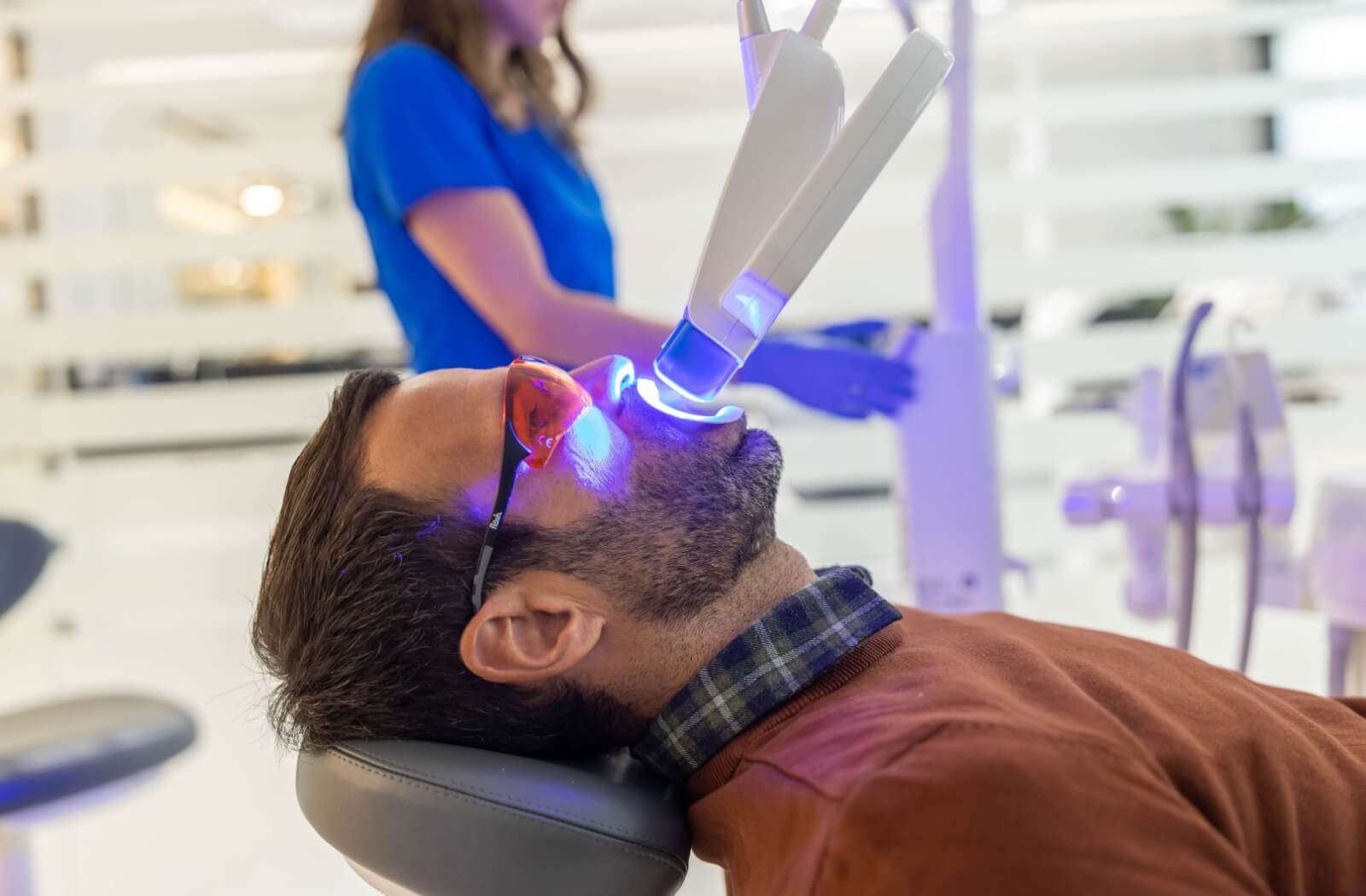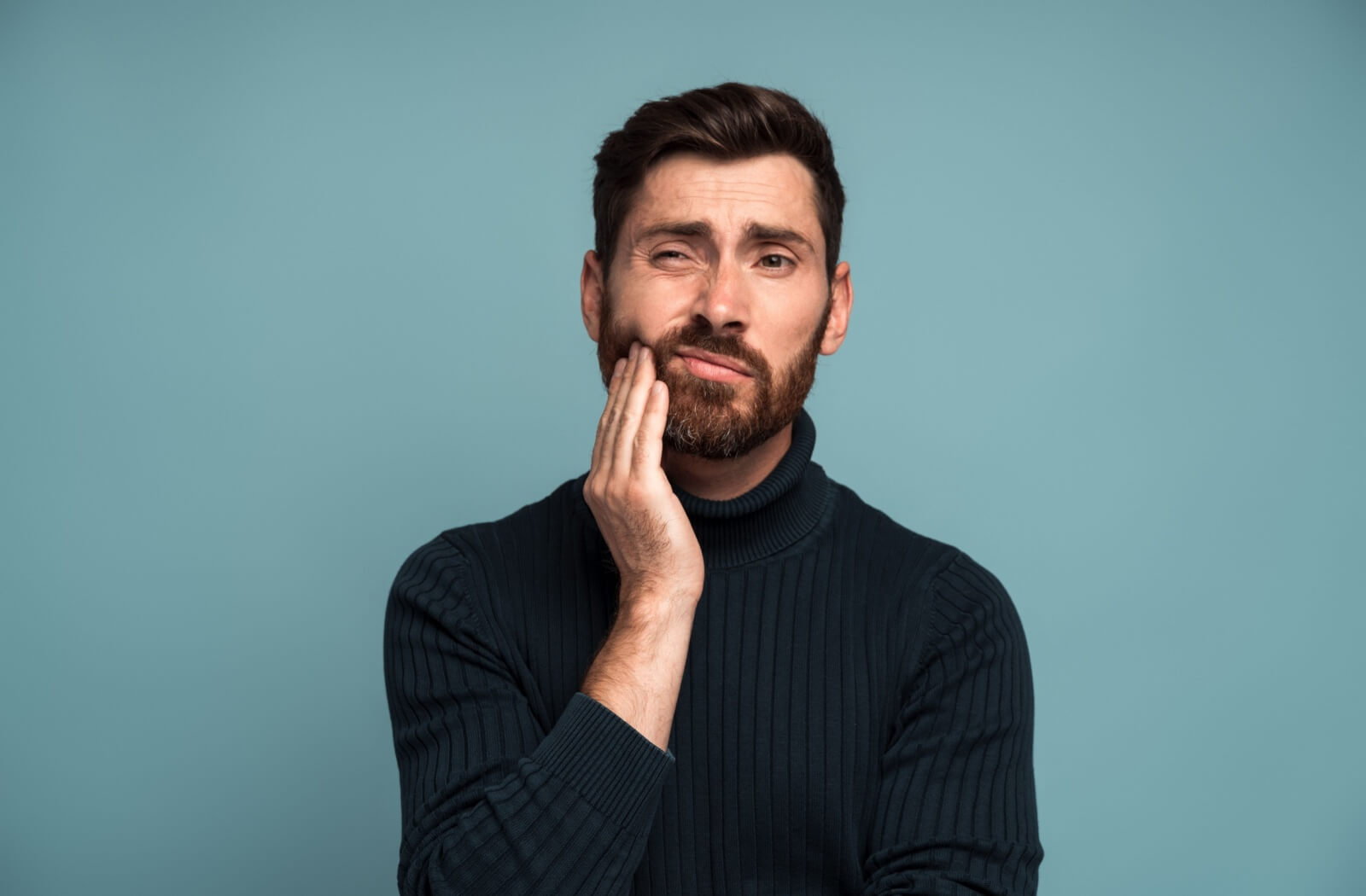
You brush twice a day, floss regularly, and use mouthwash, but maybe your teeth still look more butter than pearl white. Sound familiar?
The truth is that daily brushing and flossing clean your teeth, not brighten them. Teeth have a natural yellow or grey hue, so if you’re after a bright, white, Hollywood smile, teeth whitening treatments are the way to go.
Teeth whitening treatments can complement your oral care routine, but they are no replacement for daily brushing and flossing.
The Colour of Your Teeth
Here’s an insider secret. Despite what toothpaste commercials might have you think, most people’s natural teeth aren’t a bright, perfect white. Healthy teeth naturally have a slight hue, ranging from light grey to light yellow.
The colour of your teeth comes from dentin, which lies just underneath the enamel. Dentin tissue is naturally on the yellowish side, which shows through the translucent enamel. If your teeth look slightly yellow despite diligent brushing and flossing, don’t be hard on yourself. It’s not you, it’s your teeth!
Regular toothpaste and professional cleanings work on the surface level. They can remove some surface stains and polish your teeth, but they cannot penetrate deep into the enamel to remove embedded stains or change your teeth's natural colour.
If your teeth are naturally yellow, they might never achieve that brilliant white you see in magazines without professional intervention. This is when people turn to teeth whitening treatments.
The Daily Culprits Behind Tooth Discolouration
Even with excellent brushing habits, certain daily factors can cause your teeth to stain and discolour faster than your toothbrush can keep up.
Food & Drink Stains
Your morning coffee, afternoon tea, or evening glass of red wine might be sabotaging your whitening efforts. Dark-coloured beverages contain chromogens—pigmented molecules that easily stick to tooth enamel. Berries, tomato sauce, curry, and dark chocolate can also contribute to surface staining.
Lifestyle Factors
Smoking and tobacco use are major contributors to tooth yellowing. The tar and nicotine in tobacco products create stubborn stains that penetrate deep into tooth enamel. Even if you quit smoking, these stains can linger for years.
Certain medications can also cause tooth discolouration. Tetracycline antibiotics, some antihistamines, and blood pressure medications are known culprits.
Genetics & Age
Sometimes, yellowing teeth are simply in your DNA.
Some people are genetically predisposed to having thicker enamel (which appears whiter) or thinner enamel (which shows more yellow dentin). Age also plays a significant role. The older we get, the more our teeth naturally yellow, regardless of our oral hygiene habits.

Teeth Cleaning vs. Teeth Whitening: What's the Difference?
Here's where many people get confused: cleaning your teeth is not the same as whitening. Daily brushing, flossing, and routine cleanings are essential for keeping your teeth and gums healthy by:
- Removing plaque and tartar buildup
- Preventing cavities and gum disease
- Eliminating surface debris and some surface stains
- Maintaining overall oral health
Cleaning your teeth is a must and has proven health benefits, whereas brightening your smile is primarily for cosmetic purposes, which is perfectly fine! While you focus on achieving a glamorous smile, don’t forget the fundamentals of oral care.
Effective Teeth Whitening Solutions
Teeth whitening treatments focus on breaking down and lifting stains to improve discolouration with active ingredients (usually some form of hydrogen peroxide). The Results? A visibly brighter smile.
However, these treatments only work on natural teeth (not veneers, crowns, or artificial teeth) and don’t replace your daily brushing and flossing, so keeping up with your oral hygiene is still important.
At-Home Whitening Options
At-home whitening solutions won’t magically transform your smile overnight. They’re effective, but the results are gradual. You can find many of these products at your local pharmacy or grocery store:
- Whitening Toothpaste: These contain mild abrasives and sometimes small amounts of peroxide. While they can help remove surface stains and prevent new ones, they won't dramatically change your tooth colour. They're great for maintenance but limited for significant whitening.
- Whitening Strips: Over-the-counter (OTC) strips contain peroxide and can provide noticeable results over several weeks. They're convenient and relatively affordable, but the one-size-fits-all approach means uneven coverage and potential sensitivity.
The results vary depending on the treatment you use and the extent of staining, but they can last from several weeks to a few months with proper care and maintenance.
Professional Teeth Whitening Treatments
Professional whitening options can go one of two ways: in-clinic or at-home treatments.
In-clinic treatments are a bit more thorough, and your dentist is with you every step of the way. At-home solutions from your dentist generally include a custom teeth whitening kit that contains stronger lifting agents than OTC ones.
With proper maintenance, results can last from 6 months to 3 years.
Maintaining Your Results
Whether you choose at-home or professional whitening, maintaining your results requires ongoing attention:
- Continue excellent oral hygiene: Your regular brushing and flossing routine becomes even more important for preventing new stains.
- Use a straw: When drinking staining beverages, a straw will help minimize contact with your teeth.
- Rinse after eating: A quick water rinse after consuming staining foods can help prevent stains from setting in.
- Touch-up treatments: Periodic whitening maintenance can help preserve your results over time.
Enhance Your Beautiful Smile
Cleaning your teeth isn’t the same as brightening your smile. Daily brushing and flossing are two essential habits for a healthy smile, but they don’t magically whiten your teeth. Not to worry, that’s what teeth whitening treatments are for.
Your teeth have been working hard for you every day—maybe it's time to give them the cosmetic boost they deserve. Connect with Vita Dental Wellness to book your teeth whitening consultation today!
